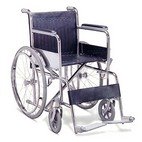Just think if Aspirin gave a buzz in addition to relieving
headaches. You might be accused of
wanting a high rather than just trying to stop you head from pounding. You may never have seen it in your medicine cabinet.
 Why are governments, health advocates and doctors so
reluctant to accept marijuana/cannabis as a potent legitimate medicine which
just happens to have pleasurable side effects?
High-browed officials exhibit shortsightedness and prejudice simply
because the substance may have first used recreationally. Governments and much of the medical
establishment see tie-dyed draped, head band wearing, long haired hippies
toking away on a giant doobie whenever they hear the word “marijuana”. “Far-out, man!”
Why are governments, health advocates and doctors so
reluctant to accept marijuana/cannabis as a potent legitimate medicine which
just happens to have pleasurable side effects?
High-browed officials exhibit shortsightedness and prejudice simply
because the substance may have first used recreationally. Governments and much of the medical
establishment see tie-dyed draped, head band wearing, long haired hippies
toking away on a giant doobie whenever they hear the word “marijuana”. “Far-out, man!”
I grew up in the 1960s and many of my idols were of that
generation indulging in ‘free love’, psychedelic music, and ‘high times’. Jim Morrison of the Doors was notorious for
always being high. Paul McCartney of the
Beatles was arrested for carrying ‘pot’.
Jimi Hendrix smoked marijuana and died the victim of harder drugs. My immediate friends all smoked dope and peer
pressure was always there to join in.
Yet I resisted and got through the ‘60’s (and to the present) without
sampling the wicked weed!
As a victim of a spinal cord injury in 2006, I have lived
every day since with severe neurogenic nerve pain, a sensation almost
impossible to describe with any accuracy or degree of severity. Along with the intense and constant nerve
pain are the paralytic spasms causing limbs to rhythmically contract and relax,
sometime violently, often for hours on end.
There is also the rigidity or tightness (tone) in the affected muscles impedes
motion and restricts flexibility.
Marijuana’s primary active ingredient of Tetrahydrocannabinol (THC) and perhaps other constituents has been shown
to have a positive effect, reducing all these symptoms significantly.
While I survived the
1960s without trying marijuana, I would
light up immediately if I could get relief from the extreme pain and extensive
discomfort I have lived with every second of every hour of every day for the
last ten years!!! Yet how do I approach
my doctor for a script, a prescription when many do not wish to get involved or
become “pushers”. How do you shop around
for an open-minded doctor when so few physicians are taking on new patients
during the doctor drought in my province?
I too have listened too intently to the negative hype and feel embarrassed
to ask? Yet if I could only get some
relief!!!!
A National
Post article[i] of October 30th, 2011 reports
on a Canadian Medical
Association Journal study from 2011 that involved 21 patients with neuropathic
pain — a common and dreaded condition that causes electric, stabbing pain found
that smoked cannabis at low doses reduces pain, improves mood and helps sleep,
without making people high. All had “refractory” pain, meaning pain that had
defied all traditional treatments. For
patients for whom the treatment works, cannabis can achieve about 30 per cent
reduction in pain intensity.
A Toronto
Star Article[ii]
of May 14th, 2012 relates a University of California study which
found that marijuana helps relieve pain and muscle tightness in Multiple
Sclerosis (MS) sufferers. Smoking marijuana can relieve muscle
tightness, spasticity (contractions) and pain often experienced by those with
multiple sclerosis, says research out of the University of California, San
Diego School of Medicine.
As you can see, paralysis victims
suffer many of the same neurological symptoms as MS sufferers.
Continuing: Rather
than rely on self-reporting by patients regarding their muscle spasticity — a
subjective measure — health professionals rated each patient’s joints on the
modified Ashworth scale, a common
objective tool to evaluate intensity of muscle tone.
The
researchers found that the individuals in the group that smoked cannabis
experienced an almost one-third decrease on the Ashworth scale — 2.74 points
from a baseline score of 9.3 — meaning spasticity improved, compared to the
placebo group. As well, pain scores decreased by about 50 per cent.
A Daily Mail
Online U.K. article[iii] reports
of a study published in ‘The Journal of Pain’ suggesting medical marijuana
reduces the use of prescription opioids (up to 64%) in those patients battling
chronic pain. The findings suggest that prescribing medical marijuana instead
of painkillers, such as OxyContin and Vicodin, may help tackle the opioid
epidemic that’s currently sweeping the United States (and other countries). In addition to lower consumption of opioids,
the patients in the study also reported fewer side effects from their
medications. Furthermore, they reported an overall 45 per cent improvement in
quality of life since using marijuana to manage their pain.
Numerous
additional sources and credible studies suggest similar benefits however I know
of no large  scale national evaluation of marijuana as a serious medicine which
has been performed and recognized by government regulating agencies. Perhaps the negative stigma is to blame.
scale national evaluation of marijuana as a serious medicine which
has been performed and recognized by government regulating agencies. Perhaps the negative stigma is to blame.
 scale national evaluation of marijuana as a serious medicine which
has been performed and recognized by government regulating agencies. Perhaps the negative stigma is to blame.
scale national evaluation of marijuana as a serious medicine which
has been performed and recognized by government regulating agencies. Perhaps the negative stigma is to blame.
The previously
cited National Post article states that “No drug company wants to evaluate
smoked marijuana as a medicine because there’s no money in it for them.”
Other
problems remain even after medical and/or recreational usage is legalized. Who will be eligible? Standardization -what
dosage? Who can prescribe? Can doctors
opt out if dissenting? Who will be authorized to dispense the drug – drug stores
or possibly liquor stores? Medical or
recreational –Taxation? Will home grown
plants be legal and allowed?
A London (Ontario)
Free Press article[iv]
from February 24th of 2016 relates: A staffer at the Organic
Traveller store in London, Oakes said customers tell him they pay $12 to $16 a
gram for approved, greenhouse-grown, poor-quality marijuana, when the street
value of home grown is $10 a gram or less.
If people have the capability of producing their own medicine, and more
cheaply, he said, “Why, in a free and democratic society, can’t we do that?”
The article
goes on to say that Shoppers Drug Mart
has shown interest in dispensing medical (and recreational?) marijuana when
finally legalized and dispensing guidelines established. I truly hope it will not be Shoppers Drug
Mart as the total incompetence they exhibited in providing service for the
wheelchairs they sold under Shoppers
Home Healthcare has me cringe. You
can read about my problems in a previous blog post entitled ‘If You WantService Like This, I Recommend…’
How many
people are we speaking of? The previous National
Post articles states that as of Sept. 30, 2011, 12,216 people in Canada held
authorization to possess marijuana for medical purposes. The above 2016 London Free Press article
states that as many as 40,000 Canadians have prescriptions for medicinal
marijuana.
I have a
hard time accepting these figures as that would mean that the number of people
who have obtained prescriptions for medical marijuana in Canada has increased
by 28,000 people in the last five years.
Could we
really be such a laid back, mellow nation with a bad case of the munchies?
One final note;
in adults, marijuana has no serious direct side effects. It is difficult to overdose on marijuana. There has never been a proven
overdose death directly caused by marijuana in humans.  (Stupidity yes, marijuana No) You don’t necessarily have to get ‘high’ to
reap the benefits. Low doses of the
active ingredient may be all that is required to substantially improve the
quality of some patients. Some have
suggested that the drug might eventually be taken orally as a pill rather than
through smoking. As a lifelong
non-smoker, that would be fine with me.
(Stupidity yes, marijuana No) You don’t necessarily have to get ‘high’ to
reap the benefits. Low doses of the
active ingredient may be all that is required to substantially improve the
quality of some patients. Some have
suggested that the drug might eventually be taken orally as a pill rather than
through smoking. As a lifelong
non-smoker, that would be fine with me.
 (Stupidity yes, marijuana No) You don’t necessarily have to get ‘high’ to
reap the benefits. Low doses of the
active ingredient may be all that is required to substantially improve the
quality of some patients. Some have
suggested that the drug might eventually be taken orally as a pill rather than
through smoking. As a lifelong
non-smoker, that would be fine with me.
(Stupidity yes, marijuana No) You don’t necessarily have to get ‘high’ to
reap the benefits. Low doses of the
active ingredient may be all that is required to substantially improve the
quality of some patients. Some have
suggested that the drug might eventually be taken orally as a pill rather than
through smoking. As a lifelong
non-smoker, that would be fine with me.
I’m stiff, I
spasm, I hurt badly. Where do I sign up
for relief?
* * *







.jpg)




No comments:
Post a Comment